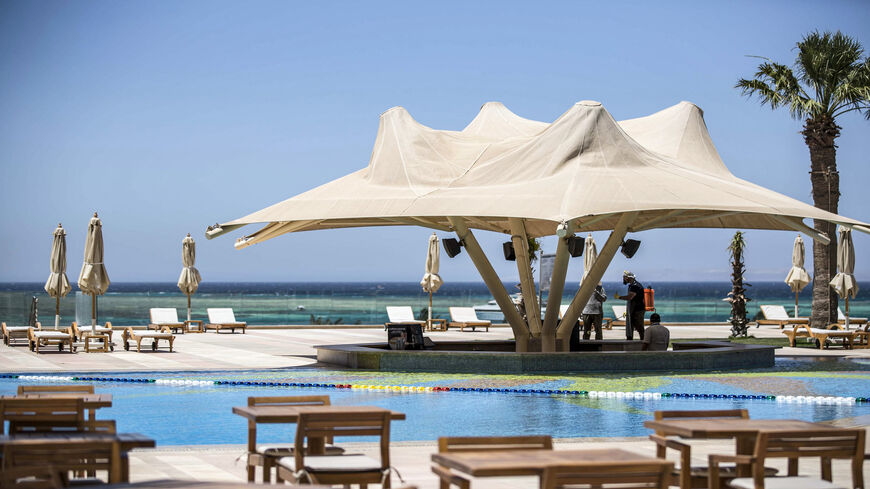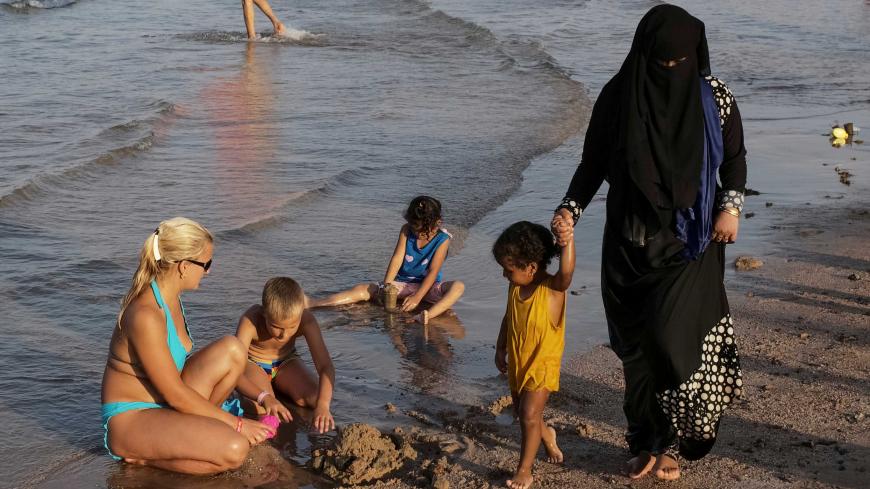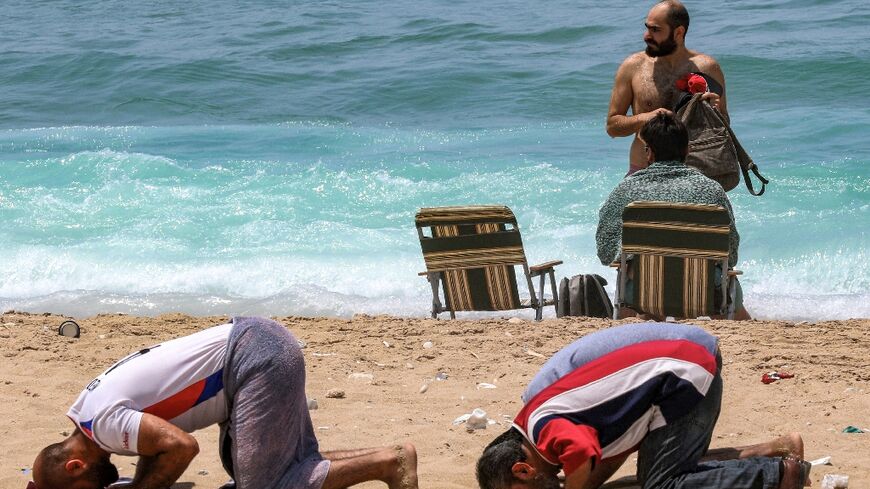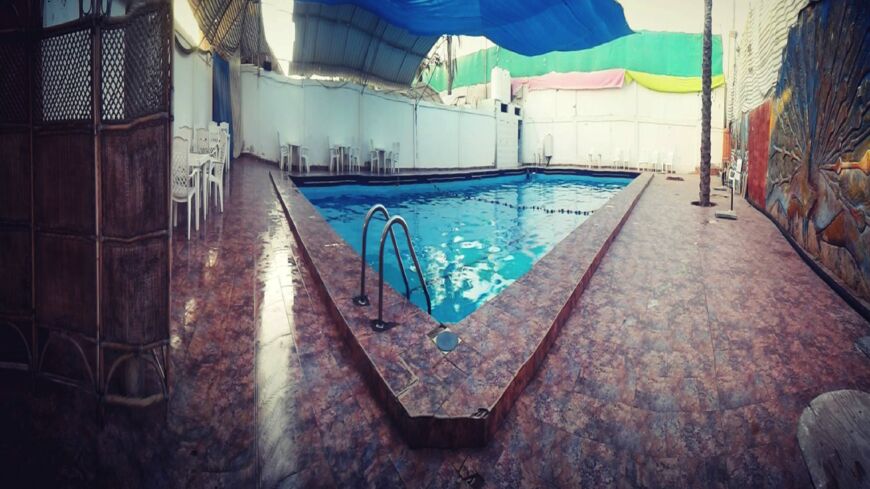Syria mandates burkinis for women at public beaches: What to know
The decree has sparked concern that Syria’s new government could be veering toward a more strict Islamist governance system.
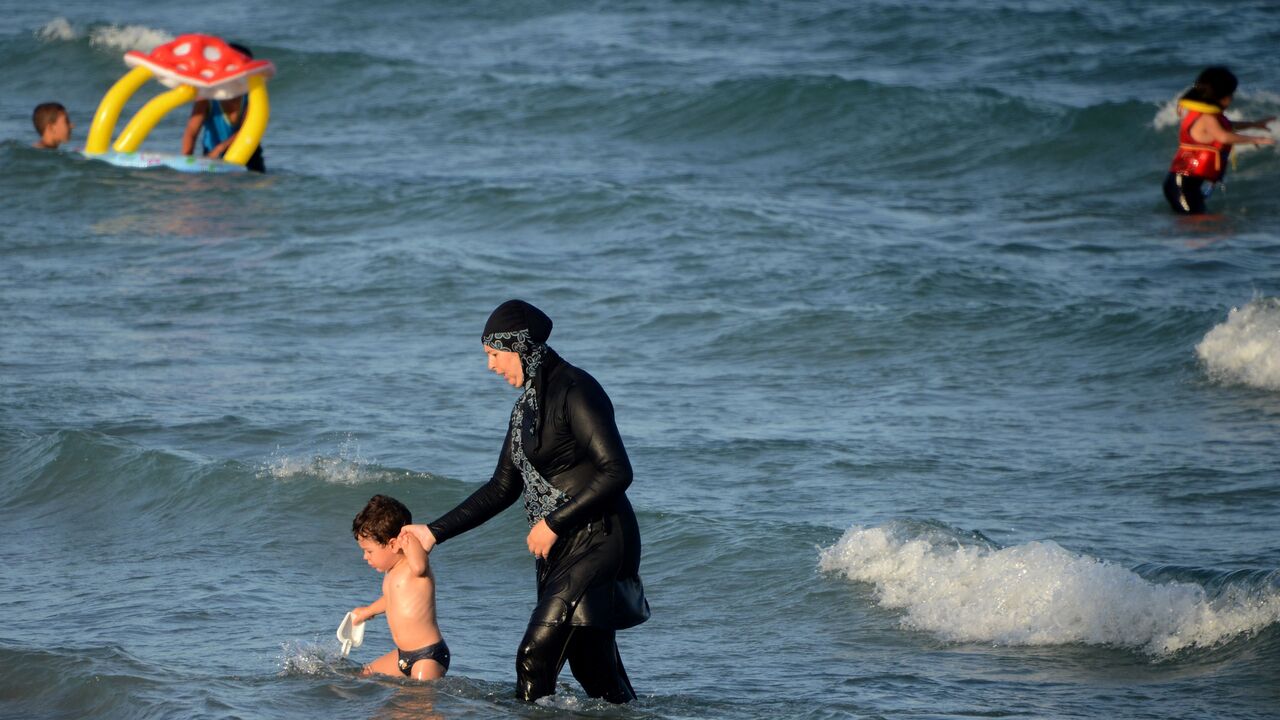
Syria's Tourism Ministry issued a decree this week saying that women are required to wear burkinis or other swimwear that covers the body at public beaches and swimming pools, prompting concerns about a potential rollback of women's freedoms under the country's new government.
What happened: The decree, issued Monday, states that “more modest swimwear is required on public beaches and pools,” specifying that women should wear a “burkini or swimwear that covers more of the body.”
“Men must wear a shirt when not swimming in the water,” the decree said. For women, “It is necessary to wear a beach cover-up or loose robe over your swimsuit."
The ministry added, however, that in four-star resorts and hotels as well as at private beaches and pools, “normal Western swimwear is generally permitted, provided that public decency is adhered to.”
In its reasoning for these decrees, the ministry cited “public decency and the feelings of various segments of society” as well as “respect for the cultural, social and religious diversity in the Syrian Arab Republic, which values moral values and general principles.”
The new guidelines were introduced as part of a broader decree outlining safety and security protocols for public beaches and pools in anticipation of summer.
Background: This decree marks the first time Damascus has formally issued dress code guidelines for women since the fall of President Bashar al-Assad in December. Under Assad's rule (1971-2024), the state did not enforce dress codes on beaches, and Western-style swimwear was broadly accepted, especially in urban and coastal areas — though informal norms of modesty often prevailed in more traditional Muslim communities.
The state-directed norms on public conduct and dress, particularly regarding women, have drawn sharp criticism from users on social media, many of whom are skeptical of the new government’s Islamist roots and fear that Syria’s new authorities will seek to impose stricter moral codes on public life.
Others, however, have expressed support for the decree, pointing out that the same guidelines are set out in Qatar and Saudi Arabia.
Much of the skepticism centers on Ahmed al-Sharaa, the current president of Syria and previous leader of the now-dissolved Hayat Tahrir al-Sham (HTS), an Islamist faction that controlled much of northwestern Syria during the civil war. Although HTS initially emerged from the al-Qaeda-linked Jabhat al-Nusra, it later sought to distance itself from global jihadism and recast itself as a more locally focused Islamist governing force, particularly in Syria’s Idlib province.
Know more: During the early days of its rule in Idlib, HTS imposed a strict form of Islamic governance that included gender segregation in public spaces, mandatory modest dress for women and religious policing of social behavior. Later, however, the group made efforts toward softening its ideology, including revoking dress codes for women.
Just one day after toppling Assad, the General Command of HTS and allied groups posted on social media, saying that “it is strictly forbidden to interfere with women’s dress or impose any requests related to their clothing or appearance, including requests for modesty.”
